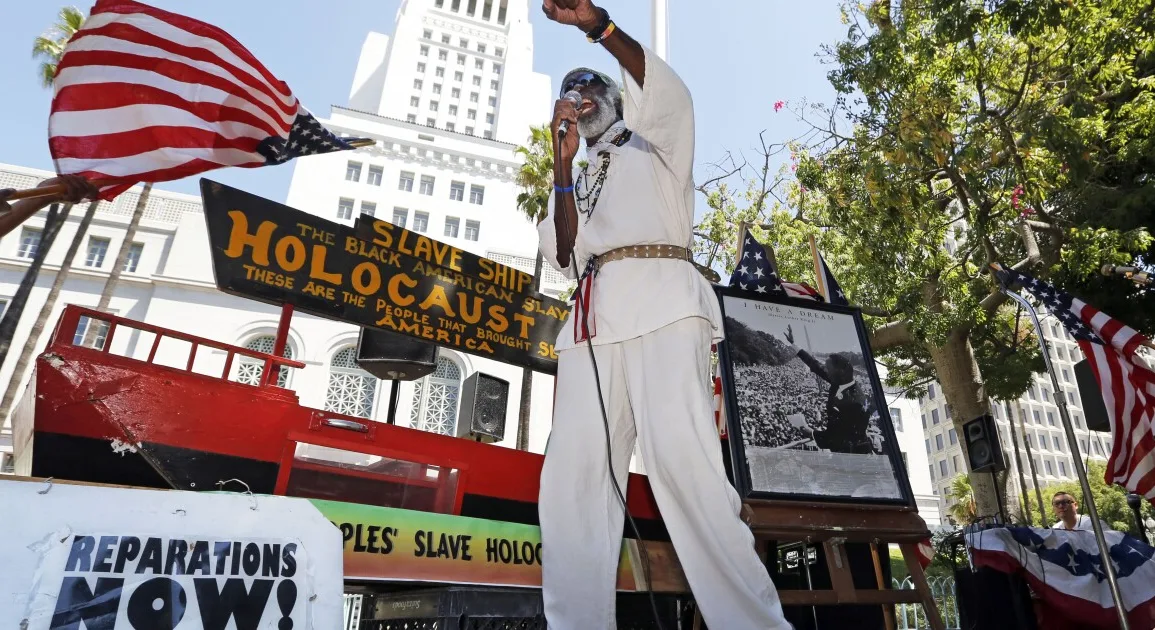Though it’s been debated for years, the idea of paying reparations to address the legacy of
slavery
has been gathering steam, especially in Democratic cities and states. In
California
, for example, a reparations commission established by the state legislature proposed cash payments of up to $1.2 million for every eligible black resident. The proposal has, predictably, generated
little enthusiasm among residents
and state officials, including those who created the commission in the first place.
To be certain, issuing monetary compensation to descendants of slaves 160 years after the end of the Civil War, which saw 360,000 Union soldiers sacrifice their lives to abolish slavery, is a suboptimal solution for the injustice of slavery and its lingering effects.
BIDEN FTC FACES LAWSUIT FOR SUPPRESSING ELON MUSK RECORDS
For one thing, foisting a multibillion-dollar tab on the current generation seems manifestly unfair. No one alive today — and indeed, no one who has been alive for generations — had anything to do with the atrocities of slavery. My Italian grandmother, for instance, immigrated to the United States in the 1920s as the daughter of a road-gang laborer. So why should her progeny be made to pay? And for that matter, why should the descendants of slaveholders be held accountable for the sins of their ancestors eight generations removed?
Conversely, the notion of “repairing” slavery is farcical. No amount of money could ever “fix” such an unthinkable atrocity. The attempt to measure it in terms of dollars and cents is an affront in its own right. The horrors that befell generations of black people — including but not limited to forced labor, wanton rape, and gratuitous physical torture — are destined to resound until the end of time without a satisfying resolution. Such spiritual damage inflicted upon the soul of a people can only be repaired by God, not men. And certainly not with money.
But despite its many flaws, limited monetary reparations for verified descendants of slaves as compensation for wages and lost inherited wealth is the best available solution to this seemingly intractable problem. It is superior to the Left’s pernicious “equity” agenda, and to the naive expectation that America’s racial divisions will heal without proaction. Indeed, it is an irrefutable fact that descendants of slaves have been unjustly deprived of the value of their ancestors’ labor while other groups have enjoyed the advantages of inherited wealth. It is an objective injustice rooted in verifiable fact — and so it demands correction.
However, the proposal from California’s Reparations Task Force is exactly the wrong way to go about it. The 1,100-page document includes a litany of recommendations for compensating black Californians with criteria that range beyond slavery, such as excessive policing, disparities in healthcare, and housing discrimination. The fundamental flaw in this “equity” driven agenda is that it’s principally concerned with engineering future outcomes instead of correcting a historical injustice.
The task force’s suggestions reflect the ideological zeal found in professor Ibram X. Kendi’s
call for a national Department of Anti-racism
.
“The DOA would be responsible for preclearing all local, state and federal public policies to ensure they won’t yield racial inequity, monitor those policies, investigate private racist policies when racial inequity surfaces, and monitor public officials for expressions of racist ideas,”
Kendi wrote
in 2019. “The DOA would be empowered with disciplinary tools to wield over and against policymakers and public officials who do not voluntarily change their racist policy and ideas.”
The problems with this breathtakingly tyrannical proposal are too numerous to catalog. It suffices to note that the enforcement of equal outcomes would require an unwieldy bureaucracy that would possess near-unlimited power to interfere in the private transactions of ordinary citizens to achieve its stated aims. “The work,” as liberal activists call it, amounts to nothing less than the enforcement of equal statistical outcomes between races, from the number of drug arrests to yearly household income (a category that has
long been dominated by Asian Americans
, not white people).
Furthermore, the “equity” solution requires the unconstitutional and morally dubious practice of discriminating on the basis of race. The Supreme Court wisely struck down race-based college admissions practices this summer, but the Kendian notion that “the only remedy to past discrimination is present discrimination” remains the default view of the Left.
A policy of limited reparations for verified descendants of slaves, however, does not rely upon future outcomes but only on dispensing justice for a previously committed crime. Since it is possible to ascertain the monetary value of the labor of enslaved black people, as well as the interest of inherited wealth denied to black families, justice demands that it return to their descendants.
CLICK HERE TO READ MORE FROM THE WASHINGTON EXAMINER
Adopting this limited measure would also amount to good politics for a Republican Party that has long been perceived as indifferent to racial injustice. The GOP voter share among black citizens has grown in each of the previous two elections, which is due largely to the Democratic Party’s hostility toward Christianity and traditional values. (Indeed,
black people are more likely to be churchgoing Christians
than any racial group in America). A Republican Party embrace of limited reparations would demonstrate concern for the black community and effectively end the Democratic stranglehold on the black vote.
It stands to reason that a country rich enough to dole out $50 billion (and counting) to defend the people of Ukraine can find the money necessary to compensate victims of the most evil crime in American history, bar none. For those who are repelled by the mere suggestion, I would simply implore serious consideration for this measure, which is rooted in objective fact and a quintessentially Christian conception of justice.
Peter Laffin is a contributor at the Washington Examiner. His work has also appeared in RealClearPolitics, The Catholic Thing, and the National Catholic Register.


